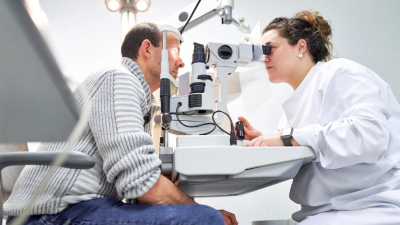Maintaining Heart Health: Strategies for Preventing Cardiovascular Diseases in the Elderly
Cardiovascular diseases are a major threat to the health of the elderly worldwide, causing approximately 17.9 million deaths each year. As we age, the heart and blood vessels become more vulnerable to damage. However, by adopting effective preventive measures, the risk of these diseases can be significantly reduced. Here are some scientifically validated methods to help the elderly maintain heart health and prevent cardiovascular diseases.
Maintaining Heart Health: Strategies for Preventing Cardiovascular Diseases in the Elderly
Cardiovascular diseases are a major threat to the health of the elderly worldwide, causing approximately 17.9 million deaths each year. As we age, the heart and blood vessels become more vulnerable to damage. However, by adopting effective preventive measures, the risk of these diseases can be significantly reduced. Here are some scientifically validated methods to help the elderly maintain heart health and prevent cardiovascular diseases.
Early Detection and Timely Treatment
The early signs of heart disease and stroke may not be very obvious, but recognizing these signs is crucial for prevention. Common symptoms of a heart attack include chest pain, shortness of breath, nausea, and dizziness. Stroke symptoms may include weakness on one side of the face or body, difficulty speaking, and vision problems. If any of these symptoms are noticed, seek medical attention immediately to enable prompt treatment.

Healthy Diet to Reduce Cardiovascular Risk
An unhealthy diet is a major cause of cardiovascular diseases. The elderly should follow these dietary recommendations:
- Reduce Salt and Sugar Intake: High salt and sugar consumption can increase blood pressure and blood sugar levels, thereby raising the risk of heart disease and stroke.
- Increase Fruit and Vegetable Intake: These foods are rich in essential vitamins, minerals, and fiber, which help maintain heart health.
- Choose Healthy Fats: Reduce intake of saturated and trans fats, and opt for foods rich in unsaturated fats, such as plant oils and fish.
Regular Exercise to Enhance Heart Function
Moderate exercise is crucial for cardiovascular health. The elderly should:
- Choose Gentle Exercises: Activities like walking, swimming, and Tai Chi are beneficial for improving heart health without putting excessive strain on the body.
- Maintain Exercise Consistency: Engage in at least 150 minutes of moderate-intensity aerobic exercise per week to strengthen heart function and boost metabolism.
Emotional Management to Maintain Mental Health
Emotional fluctuations can significantly impact cardiovascular health. The elderly should:
- Maintain a Positive Attitude: Learn to manage stress and avoid anxiety or anger over minor issues.
- Seek Psychological Support: If necessary, seek professional psychological counseling to help maintain a good emotional state.
Quit Smoking and Limit Alcohol Intake to Reduce Cardiovascular Disease Risk
Smoking and excessive alcohol consumption are significant risk factors for cardiovascular diseases. The elderly should:
- Quit Smoking: Nicotine and carbon monoxide in tobacco accelerate arterial hardening and reduce oxygen transport in the blood.
- Limit Alcohol Intake: Excessive drinking can be toxic to the heart muscle and increase the risk of heart disease.
Regular Check-Ups to Monitor Health Indicators
Regular monitoring of blood pressure, blood sugar, and cholesterol levels helps keep track of overall health. Check-ups can help detect potential issues early and allow for timely intervention.
Preventing cardiovascular diseases is a long-term process that requires the elderly to consistently practice healthy habits in daily life. By maintaining a healthy diet, engaging in regular exercise, managing emotions, quitting smoking, limiting alcohol, and scheduling regular check-ups, the elderly can effectively reduce the risk of cardiovascular diseases and enjoy a healthy and happy later life. Let’s start now to build a solid "shield" for heart health and embrace a brighter future!











